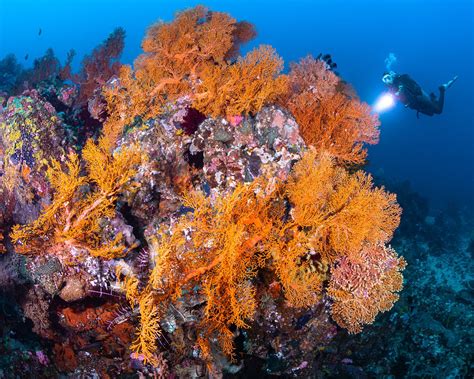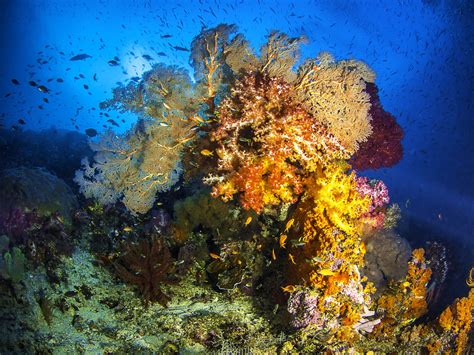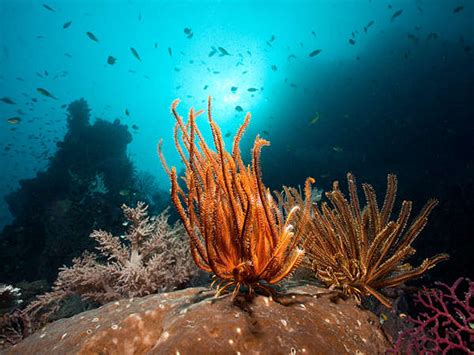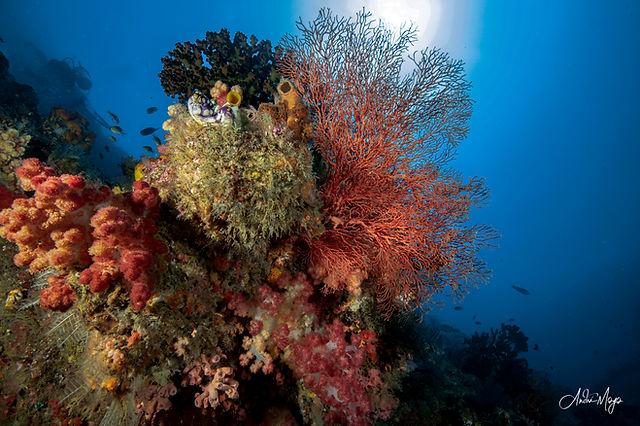Coral reefs are among the most vibrant and vital ecosystems on Earth, often referred to as the “rainforests of the sea.” These underwater structures are formed by colonies of tiny, delicate coral polyps and serve as a foundation for immense biodiversity, providing habitat, food, and protection for countless marine species. Beyond their ecological importance, coral reefs play a crucial role in supporting human economies, from tourism and fisheries to coastal defense. However, these fragile ecosystems are increasingly threatened by human activities and environmental changes. Understanding the significance of coral reefs and the urgent need for their conservation is essential for ensuring the health and sustainability of our planet’s oceans.
Join uzocn.com as we delve deeper into this topic.
1. Introduction to Coral Reefs: Brief overview of what coral reefs are and their significance as marine ecosystems.
Coral reefs are intricate and diverse marine structures composed primarily of calcium carbonate, formed from the skeletons of coral polyps. These tiny, soft-bodied creatures live in colonies, their accumulated skeletons building vast, complex reef systems over time. Found in warm, shallow waters, especially in tropical and subtropical regions, coral reefs occupy less than 1% of the ocean floor. Despite their limited area, they provide habitat for an astounding 25% of all marine life.
Coral reefs are frequently called the “rainforests of the sea” due to their remarkable biodiversity. They provide a vital habitat, offering shelter, breeding grounds, and feeding areas for a wide array of marine life, including fish, crustaceans, mollusks, and many others. This rich biodiversity not only sustains marine life but also plays a crucial role in the overall health of ocean ecosystems by maintaining water quality and fostering nutrient cycling. The importance of coral reefs extends beyond their ecological roles; they are essential for the survival and prosperity of countless marine species.

2. Biodiversity Hotspots: Discuss the immense biodiversity harbored within coral reefs and their role in supporting marine life.
Coral reefs are among the most biologically diverse ecosystems on the planet, often compared to tropical rainforests in terms of species richness. Despite occupying a small fraction of the ocean floor, coral reefs support an astonishing variety of life, including over 4,000 species of fish, 800 types of hard coral, and countless invertebrates, such as mollusks, echinoderms, and crustaceans. This incredible biodiversity is not just a marvel of nature but a critical component of the broader marine environment.
The dense, complex structures of coral reefs provide shelter and breeding grounds for marine species, offering protection from predators and harsh ocean currents. Many fish and invertebrates rely on the reef for their entire lifecycle, from larvae to adulthood. The interdependent relationships among reef inhabitants contribute to a delicate balance, maintaining the health and stability of the ecosystem. Moreover, coral reefs play a vital role in nutrient cycling, supporting the productivity of surrounding waters and ensuring the survival of numerous species, both within and beyond the reef.

3. Economic Importance: Explore the economic value of coral reefs, including tourism, fisheries, and coastal protection.
Coral reefs are vital economic assets, contributing substantially to diverse industries and supporting the livelihoods of countless people globally. Their beauty and biodiversity make them a major draw for tourism, attracting millions of visitors annually. These vibrant underwater ecosystems generate billions of dollars in revenue for local economies through activities like snorkeling, scuba diving, and eco-tourism. Coastal communities depend heavily on this tourism influx, which sustains businesses ranging from hotels to tour operators.
Beyond their allure to tourists, coral reefs play a crucial role in sustaining global fisheries. They serve as essential breeding and feeding grounds for numerous commercially valuable fish species, supporting both small-scale and large-scale fishing operations. The high productivity of these ecosystems ensures a consistent supply of seafood, a vital source of protein for millions worldwide.
In addition, coral reefs serve as natural barriers, shielding coastal regions from erosion, storm surges, and even tsunamis. This coastal protection minimizes the requirement for costly artificial defenses, ensuring the safety of human populations and infrastructure, and safeguarding valuable land.

4. Environmental Threats: Highlight the various threats facing coral reefs today, such as climate change, ocean acidification, and overfishing.
Coral reefs, despite their resilience, are facing unprecedented environmental threats that jeopardize their survival. Among the most pressing challenges is climate change, which leads to rising sea temperatures. Even slight increases in water temperature can cause coral bleaching, a stress response where corals expel the symbiotic algae living within their tissues. These algae are crucial for coral survival, providing them with food through photosynthesis and giving them their vibrant colors. Without these algae, corals turn white, weaken, and may eventually die if conditions do not improve.
Ocean acidification, another consequence of increased atmospheric carbon dioxide, poses a significant threat to coral reefs. As CO2 levels rise, more of it dissolves into the ocean, lowering the pH and making the water more acidic. This acidity reduces the ability of corals to build and maintain their calcium carbonate skeletons, weakening the entire reef structure and making it more susceptible to erosion and damage.
Overfishing further exacerbates the decline of coral reefs by disrupting the delicate balance of marine life. Removing key species, such as herbivorous fish that graze on algae, allows algae to overgrow and smother corals, hindering their ability to thrive. Additionally, destructive fishing practices, such as dynamite fishing and the use of cyanide, directly damage the reef’s physical structure, leading to long-term ecological degradation. The cumulative impact of these threats underscores the urgent need for effective conservation efforts to preserve these vital ecosystems.
uzocn.com


